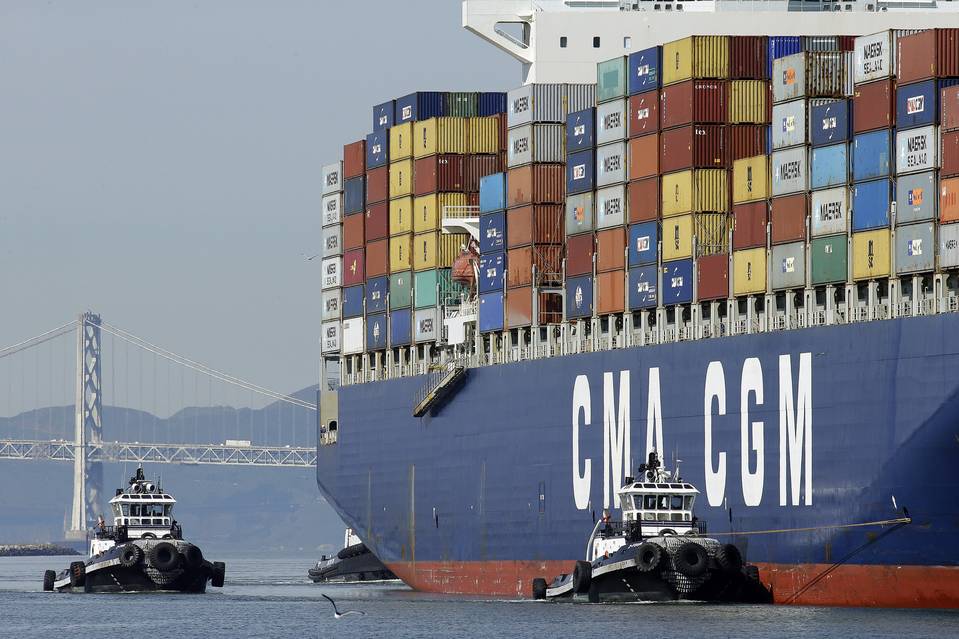From a money spinner, the Calabar Port is turning into a revenue loser following its littering with wrecks and an abandoned rig worth millions of dollars.
Activities were low. Two “critical” wrecks and the abandoned Delta Queen Rig were seen there.
A senior official of the Ministry of Finance (FMoF), who pleaded not to be named, said the Federal Government and the Nigerian Ports Authority (NPA) should put the port into good use to revamp the economy.
The port, he alleged, has become an avenue for siphoning public fund.
He urgedPresident Muhammadu Buhari to direct the Minister of Transport, Mr Rotimi Amaechi, and the NPA to transform the port because of its importance to the nation.
The official said the port used to ba a money spinner. He told The Nation that between 2008 and last year, NPA generated $117,178,000 and over N2.2 billion from the port.
The breakdown of the amount generated in dollars and naira as exclusively obtained by The Nation is as follows: $26,529,000 and N203,438,000 in 2008.
Between 2009 and 2011, it was $37,522,000 and N898,737,000. In 2012 and 2013, it made $26,946,000 and N581,109,000. Between 2014 and last year, the port realised $26,197,000 and N540,942,000.
The official said: “It is sad that the multi-billion dollar investment at the port was rendered useless by the past management of the NPA.
“The amount generated between 2008 and last year by the agency showed that if the NPA is compelled to pay adequate attention to the port, more revenue would accrue to the government.
“If the several billions of naira collected by the NPA were judiciously invested in dredging the port, the channel will not remain shallow and difficult for big vessels to approach.
“It is sad that up till today, its channel remains shallow, and investors at the port have continued to count their losses,” the official said.
He accused some top past NPA officials of only interested in awarding contracts for dredging and re-dredging of the port without corresponding development of its infrastructure.
He alleged that poor work was done on the dredging of the channel.
The government, the official, lost a lot of revenue through the frequent dredging of the port.
But investigation revealed that the port has a comparative distance advantage to the Northeast than any port in the country.
While the distance between Cross River and Taraba states is 711km and the transit time is nine hours, 58 minutes; the distance from Port/Harcourt, Warri and Lagos to Taraba is 773km, 901km and 1,160km, and it takes 10 hours, 49 minutes; 12 hours, 4 minutes and 14 hours 24 minutes from each of the states to Taraba.
Findings also revealed that the distance from Cross River to Gombe state is 983km and the transit time is 13hrs,58mins; the distance from Port/Harcourt, Warri and Lagos to Gombe is 1,060km, 1,034km and 1,240km respectively, and it takes 14hrs, 15mins; 14hrs, 40mins and 16hrs 39mins from each of the states to Gombe.
Also, the distance from Calabar to Bauchi is 910km and the transit time 13 hours, 14 minutes. Whereas the distance from Port Harcourt, Warri and Lagos to Bauchi is 965km, 939km and 1,145km, and it takes 13 hours, 10 minutes; 13 hours, 36 minutes and 15 hours 34 minutes from each of the states to Bauchi.
Investigation further showed that the distance between Calabar and Adamawa is 865km with 11 hours, 57 minutes transit time. But the distance from Port Harcourt, Warri and Lagos to Adamawa is 927km, 1,055km and 1,314km, and it takes 12 hours, 49 minutes; 14 hours, 4 minutes and 16 hours 23 minutes from the states to Adamawa.
The story is the same from Calabar to Borno and Yobe states.
“There is no gain saying that Calabar Port is very strategic to the economic development of Nigeria particularly the Northcentral, Southsouth and Southeast regions of the country.
“Besides, when functional, it will increase the volume of vessel traffic and cargo throughput in the port, decongest Lagos ports and reduce cost of doing business for Calabar-based businessmen who spend additional transport cost to take delivery of their consignments in Lagos and Onne ports.
“The port is strategically located for imports and exports for distribution to other ports along the West/Central and Southern African coastline. The location of Calabar Free Trade Zone (CFTZ) in close proximity with the port speaks volumes for itself,” the official said.
He identified erosion, the length and the dredging of the 84km channel, the wrecks, the abandoned rig, insufficient tugs and pilot cutters, the deplorable Calabar/Itu/Aba road and the low height limitation of the Ikom bridge as the port’s major challenges, which should be fixed by the government to turn it to profit.

 Billionaire Watch3 weeks ago
Billionaire Watch3 weeks ago
 Startups4 weeks ago
Startups4 weeks ago
 News4 weeks ago
News4 weeks ago
 News4 weeks ago
News4 weeks ago
 Bitcoin4 weeks ago
Bitcoin4 weeks ago
 Naira4 weeks ago
Naira4 weeks ago
 Forex3 weeks ago
Forex3 weeks ago
 Treasury Bills4 weeks ago
Treasury Bills4 weeks ago

























